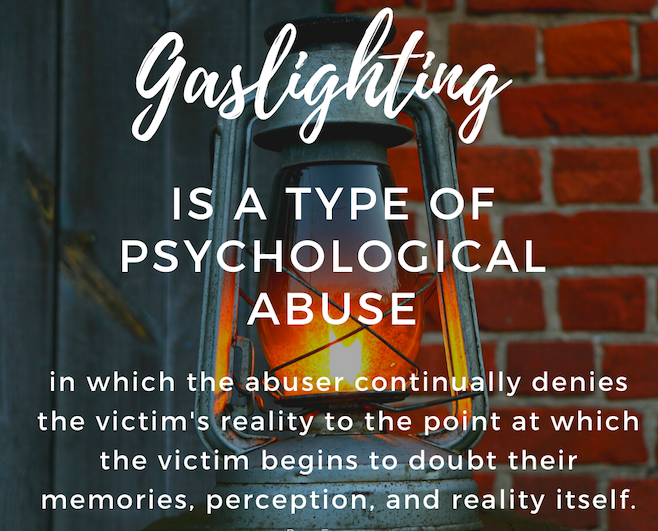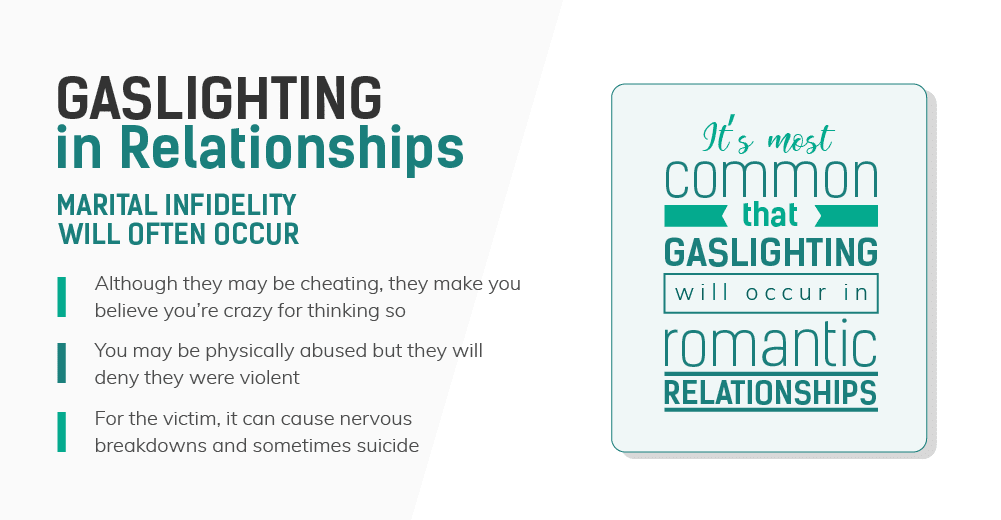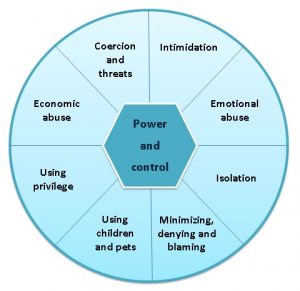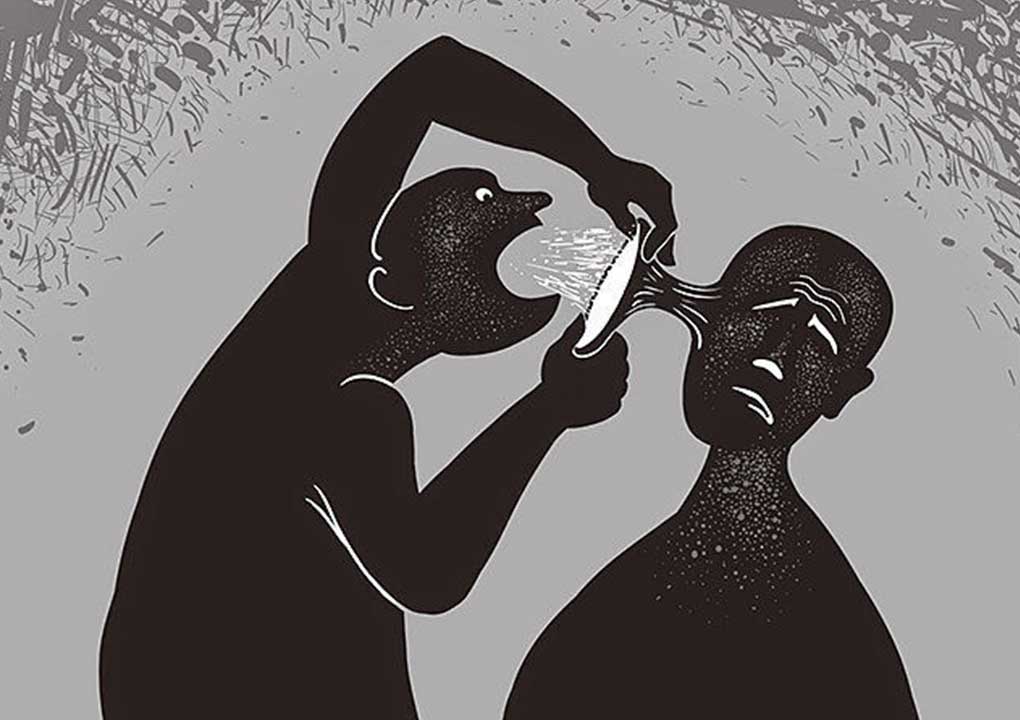Do you feel like you’re constantly walking on eggshells in your relationship? Do you feel like your partner is always questioning your sanity and making you second-guess yourself? If so, then you may be a victim of gaslighting. In this article, we will discuss what gaslighting is, how to handle it, and why you should seek help if you’re experiencing it.
Contents
- 1 Understanding Gaslighting In Relationship
- 2 Evaluating Gaslighting In Relationship
- 3 Damaging Effects of Gaslighting In Relationship
- 4 Handling Gaslighting And Stopping Psychological Bullying
- 5 Responding To Gaslighter
- 6 Countering Phrases For Gaslighters
- 7 Talking To Professional
- 8 Hearing From Experts
- 9 Conclusion
- 10 A Word From Therapy Mantra
Understanding Gaslighting In Relationship

Gaslighting is a form of psychological abuse whereby the abuser manipulates the victim into questioning their sanity. The abuser will often use tactics like denial, blame-shifting, and manipulation to make the victim doubt their perceptions. This can result in the victim feeling isolated and alone, not knowing who to trust or what to believe.
Types of Gaslighting In Relationship
There are three main types of gaslighting in a relationship:
- Manipulative: This type of gaslighting is where the abuser will use manipulation to control the victim. They may try to isolate the victim from their friends and family or make them feel like they can’t do anything right. The abuser may also use guilt trips or threats to get what they want.
- Reactive: This type of gaslighting is where the abuser will react in an extreme way to something that has been said by the victim, even though it may not have been anything serious. The abuser will then use this reaction to discredit the victim and make them feel like they’re always walking on eggshells around them.
- Verbal: This type of gaslighting is where the abuser will use words to manipulate and control the victim. They may use phrases like “You’re crazy,” or “You’re over-reacting” to make the victim feel like they’re not being heard or that their feelings aren’t valid. Verbal gaslighting can also include phrases like “I didn’t say that,” or “You’re making things up” when the victim recalls a conversation accurately.
Signs of Gaslighting In Relationship

If you’re wondering if you’re in a relationship with a gaslighter, there are some signs to look out for:
- Your partner tries to control you – If your partner tries to control what you wear, who you talk to, or where you go, then they may be a gaslighter.
- You constantly doubt your sanity – If you feel like you can’t trust your judgment or that you’re always walking on eggshells around your partner, then it’s likely that you’re a victim of gaslighting.
- You feel like you can’t do anything right – If you feel like no matter what you do, it’s never good enough for your partner, then you may be experiencing gaslighting.
- Your partner constantly denies your allegations – If your partner always denies any wrongdoing, even when there is evidence to support your claims, then they may be a gaslighter.
- Your partner tries to isolate you from friends and family – If your partner tries to control who you can see and when, or makes disparaging comments about your loved ones in an attempt to turn them against you, then they are likely trying to isolate you. This is a common tactic of gaslighters.
Tactics Used By Gaslighters
There are a few common tactics that gaslighters use to control their victims:
- Denial: The abuser will deny any wrongdoing and try to make the victim feel like they’re crazy for thinking that anything bad is happening.
- Blaming the victim: The abuser will blame the victim for anything that goes wrong in the relationship, even if it was their fault.
- Manipulation: The abuser will use manipulation to control the victim and get what they want. This can include guilt trips, threats, and isolation from friends and family.
- Projection: The abuser will project any negative feelings or behaviors onto the victim, which can make them feel like they’re always walking on eggshells around their partner. This is a common tactic of gaslighters who try to deflect blame from themselves.
Stages of Gaslighting In Relationship
There are three main stages of gaslighting in a relationship:
- The honeymoon phase: This is where the abuser will try to make the victim feel like they’re perfect, and that there’s no one else in the world who could understand them better than their partner does.
- The tension-building phase: This is where small arguments start to occur between the two people involved. The gaslighter may accuse their partner of being too sensitive, or of not listening to them enough.
- The explosion phase: This is where the gaslighter will explode with anger and blame their partner for everything that has gone wrong in their relationship. The victim may feel like they’re constantly walking on eggshells around their partner, who can be extremely controlling at times.
Evaluating Gaslighting In Relationship

If you’re in a relationship with a gaslighter, it’s important to evaluate the situation and ask yourself some tough questions.
- Do I feel like I can’t trust my judgment?
- Am I always walking on eggshells around my partner?
- Does my partner constantly deny my allegations?
- Do I feel like I can’t do anything right in this relationship?
If you answer yes to any of these questions, then it’s likely that you’re in a relationship with a gaslighter. And that’s not healthy for either of you.
NOTE:
Damaging Effects of Gaslighting In Relationship
Gaslighting can be extremely damaging to a relationship. Some of its damaging effects are:
Low self-esteem: If you’re constantly being told that you’re stupid or crazy, then it’s likely that your self-esteem will suffer. The victim may also start to doubt themselves and their abilities, which can impact every aspect of their lives.
Inability to trust others: If you can’t trust your partner, then who can you trust? Thus, the victim will struggle with trust issues and don’t know who is telling the truth anymore – not even themselves!
Depression and anxiety: It can be extremely difficult to live with someone who constantly makes you doubt yourself and your sanity. This can lead to feelings of depression and anxiety in the victim.
The effects of gaslighting can last for years after the relationship ends, and even into adulthood if it isn’t dealt with properly. They may also experience post-traumatic stress disorder (PTSD) as a result of the gaslighting.
NOTE: If your partner has been gaslighting you and you’ve tried everything to get them to stop with no success, it may be time to consider leaving the relationship. This isn’t an easy decision, but if you’re being emotionally abused, it’s probably not a healthy one for you to stay in. There are many things to consider before making this decision, such as the children or finances, but if you’re feeling unsafe or like you can’t continue to live this way, it may be time to go.
Handling Gaslighting And Stopping Psychological Bullying
Gaslighters are masters of manipulation, and they know exactly how to push your buttons to get what they want from you. You may feel like there’s nothing that can be done about this abuse because the gaslighter is so skilled at manipulating you. However, there are ways to handle gaslighting and stop psychological bullying from taking place in your relationship:
Don’t engage in their games
Gaslighters will often try to get under your skin by acting out or doing things that they know you won’t approve of. When this happens, it’s important not to give them the reaction they’re looking for. Don’t engage with them, and don’t let them manipulate you.
Set boundaries
If your partner is constantly crossing your boundaries, it’s time to set some boundaries. Let your partner know what behaviors are off-limits for them, and stick to those rules. If they break them again, then you’ve got yourself an entirely different problem on your hands.
Call out their behavior
If your partner is constantly putting down or making fun of you in front of others, it’s important to let them know that this isn’t okay with you. Letting them get away with these behaviors will only make things worse for you down the road.
Get out of the relationship
If your partner is constantly making fun of you, lying to your face, or denying their behavior when confronted about it then it’s time to get out of this relationship. It doesn’t matter how long they’ve been doing this; if they’re not willing to change their ways and respect your boundaries then it’s time to move on.
Seek professional help
This is probably the best step you can take if you’re dealing with gaslighting in your relationship. A therapist will be able to help you understand what’s going on, and how to deal with it. They can also help you deal with the emotional trauma that comes from being in a relationship with someone who constantly makes you feel like garbage.
Responding To Gaslighter
If you think your partner is gaslighting you then it’s important to address the issue right away. Gaslighters don’t usually change their behavior unless forced to do so by an outside source (e.g., a therapist or counselor).
Don’t say anything in the heat of the moment
If your partner has just done something that you’re not happy with, it’s best to wait until you’ve had time to cool off before bringing it up. Confronting your partner when they’re already upset about something else will only make things worse for both of you in the long run.
Document everything
If your partner is constantly doing things that make you feel crazy, it’s helpful to document them. This can include anything from texting or emailing evidence of their behavior to writing down specific examples of what they’ve done. This will help you when you eventually do decide to confront them about the issue.
Talk to a friend or family member
It’s also helpful to talk to someone else about what you’re going through in order to get another perspective. Talking to a friend or family member can help you gain some clarity and make the decision whether or not to stay in the relationship.
Don’t be afraid to ask for help
If you don’t feel comfortable addressing the issue yourself, then don’t be afraid to ask a friend or family member for help. They may not be familiar with gaslighting, but they can still offer support as you work through this difficult time.
Document everything
This is a good idea in any type of relationship, but it’s especially important if your partner is gaslighting you. Keeping a journal or recording of the things your partner says and does will help you when it comes time to seek professional help. It will also give you some evidence to back up your claims if things ever get ugly and you have to go to court.
Meet with a therapist
The best thing to do if you feel like your partner is gaslighting is to meet with a therapist and discuss what’s going on. A therapist has no reason to tell anyone else what’s going on between two people unless there is an immediate danger of someone getting hurt or killed–and even then they would have to break confidentiality.
Countering Phrases For Gaslighters
If you feel comfortable confronting your partner about their gaslighting behavior, then there are some things you can say to help get the conversation started. Here’s what psychologists recommend when talking with someone who is being abusive or manipulative:
“I feel like I’m going crazy”
This phrase can be extremely effective in getting your partner to realize how their behavior is affecting you. It shows them that you’re not just making things up and that their behavior is, in fact, having a real impact on your life.
“You’re making me feel crazy”
This phrase is similar to the last one, but it’s even more direct. It shows your partner that their behavior is causing you distress and gives them an opportunity to apologize or explain what they’re doing wrong so they can stop doing whatever it is that’s causing such negative effects on your life.
“I’m not crazy”
This phrase lets your partner know that you’re not just making things up. It lets them know they can’t convince you that what’s happening isn’t real, so they’ll have to stop trying if they want the relationship to survive.
“I feel like I’m losing my mind”
This phrase is similar to “You’re making me feel crazy,” but it has a bit more of an edge to it. It’s perfect for partners who are particularly manipulative or abusive, as it shows them that their actions are causing you a great deal of pain and may even be making you question your own sanity.
“I’m not going crazy, am I?”
This phrase is a way of asking your partner if they think you’re going crazy. It’s a way of putting the ball in their court and making them realize that their gaslighting behavior is having a real impact on your life.
“I don’t know what’s wrong with me”
This phrase lets your partner know that you feel like something must be wrong with you for letting them treat you this way. It’s a way of asking them why they’ve been treating you so badly and gives them an opportunity to apologize or explain their behavior if it’s ever going to change for the better.
“Why are you doing this to me?”
This question is perfect for getting your partner to open up and explain their behavior. It lets them know that you’re confused by their actions and want some answers.
Checkmate Phrases
- “I don’t deserve this”
- “What did I do wrong?”
- “I’m not going to let you make me feel this way anymore”
- “I’m tired of feeling this way”
These phrases are perfect for partners who seem to think they can treat you however they want without consequences. It shows them that you know your worth and that you’re not going to put up with their abuse any longer.
Talking To Professional
If you’re experiencing gaslighting in your relationship, it’s important to seek professional help. This type of psychological abuse can be extremely damaging, and left untreated can lead to long-term mental health issues.
When talking to a professional about gaslighting, they will likely want to know the following:
- How long has the gaslighting been going on?
- What does it look like when your partner is gaslighting you?
- How do they make you feel as a result of their behavior?
- Have you tried to talk to them about this before or asked them to stop? If so, what happened, and did it work out in your favor or not at all?
- Have you considered leaving the relationship because of this issue? If not, have they threatened to leave if you do so again? Are there any other reasons why it might be difficult for either one of you to get out now (i.e., children or finances)?
- What would need to change for things between you and your partner to improve?
- What kind of support could you use to deal with this situation, both short-term and long-term?
These are just some of the questions that a professional may ask when trying to help you understand and deal with gaslighting in your relationship. If you’re feeling unsafe or like you’re in danger, don’t hesitate to reach out for help. Some people can support you through this difficult time.
NOTE: Therapists are bound by law to keep what you tell them confidential. So you can rest assured that whatever you say in session will stay between the two of you.
Therapy Options
Therapy is a great option for anyone who feels like they’re being gaslighted in their relationship, and there are many different types of therapeutic options available. Such as:
- Cognitive Behavioral Therapy (CBT): This type of therapy is often used to treat mental health conditions, such as anxiety and depression. It helps you understand how your thoughts and behaviors are related and teaches you different ways to deal with difficult emotions.
- Dialectical Behavior Therapy (DBT): DBT is a type of therapy that focuses on helping people cope with challenging situations. It teaches you skills like mindfulness, emotional regulation, and interpersonal effectiveness.
Support groups can also provide valuable support, especially if you don’t want to go through this alone. You might consider joining an online forum where people share stories about their experiences with gaslighting or finding a group in your local area.
NOTE: No matter what you choose to do, it’s important to remember that you’re not alone in this. Some people want to help, and with the right support system, you can get through this difficult time.
Hearing From Experts
“Gaslighting is a form of psychological abuse that involves manipulating another person into doubting their own perceptions, memories, and sanity. It’s often used as a control tactic by abusers who want to maintain power over their partner.”
—Kristen Fuller M.D., a psychiatrist at Onsite Collaborative Care
“It can be hard to recognize gaslighting at first because it’s usually done in subtle ways. It can also be difficult for people who are experiencing this type of abuse because they’re often made to feel like they’re the ones who have issues, not their partners.”
—Jennifer Landa M.D., OB/GYN and medical advisor to Prolong
“Gaslighting can cause long-term mental health issues if it’s not addressed. It’s important to seek professional help if you’re experiencing these types of behaviors in your relationship.”
—Chelsea Krost, host of Chelsea Lately
Conclusion
Gaslighting is a form of psychological abuse that can be extremely damaging to a relationship. The most important thing to remember is that if you think you might be experiencing gaslighting in your relationship, it’s crucial not to keep feeling bad about yourself or putting up with the abuse any longer!
If you’re experiencing it, there are ways to handle it and get the help you need. Seek professional help if you feel like you’re in danger, and remember that you’re not alone. Some people want to help. Get help right away because no one deserves to be treated like this.
A Word From Therapy Mantra
Your mental health — Your psychological, emotional, and social well-being — has an impact on every aspect of your life. Positive mental health essentially allows you to effectively deal with life’s everyday challenges.
At TherapyMantra, we have a team of therapists who provide affordable online therapy to assist you with issues such as depression, anxiety, stress, workplace Issues, addiction, relationship, OCD, LGBTQ, and PTSD. You can book a free therapy or download our free Android or iOS app.


